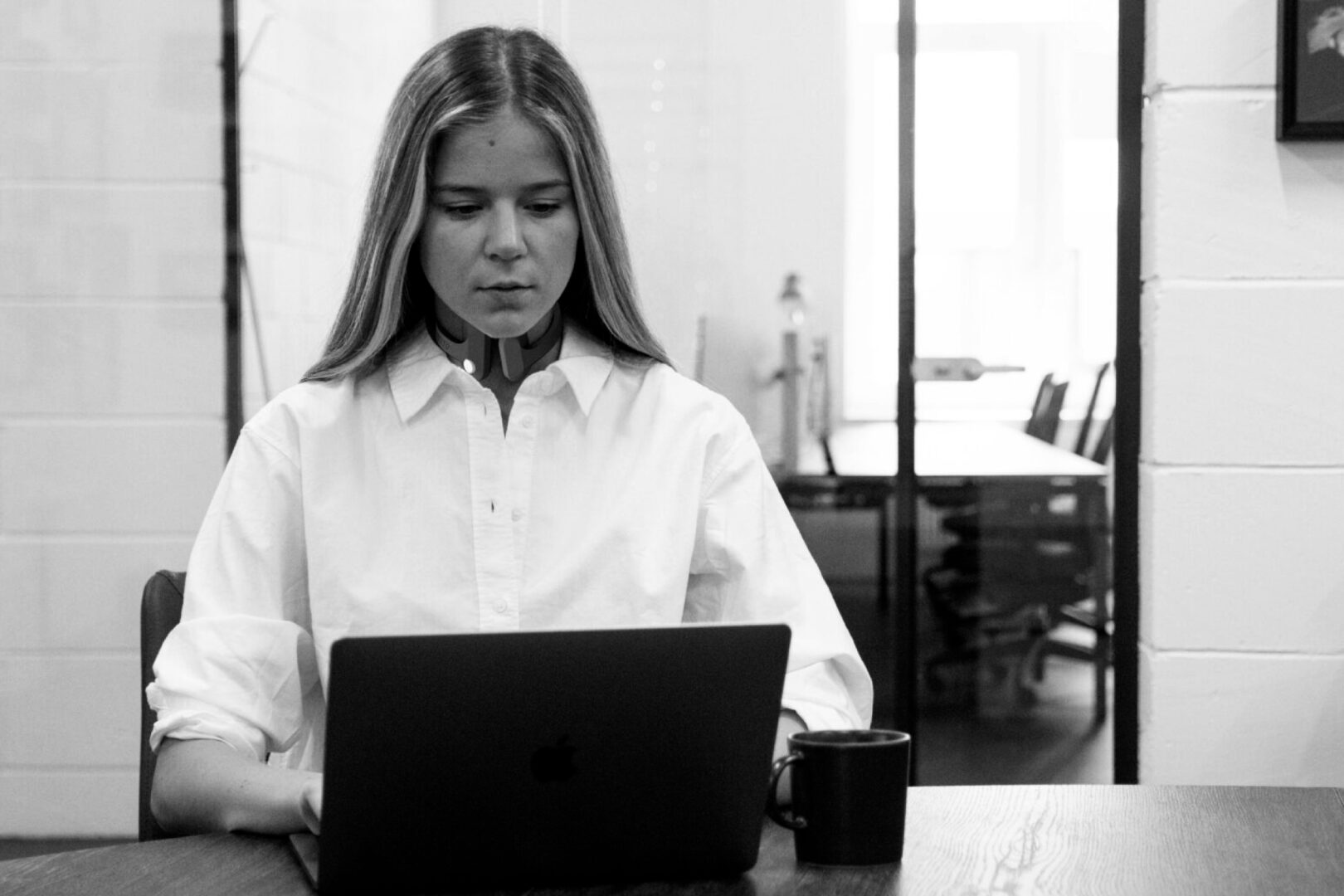

If you have spent any amount of time researching mental health, you have probably been bombarded with suggestions about vagus nerve stimulation.
It seems that it came out of nowhere – just a few months back, we didn’t know anything about it. Right now, it seems to be a solution for PTSD, gut health issues, depression, inflammation – you name it, vagus nerve stimulation seemingly can heal it.
Naturally, many of us would be suspicious of such a miracle cure. And rightfully so.
Today I wanted to talk a bit about the research behind vagus nerve stimulation and why I believe it can help us feel calmer.
Before we begin, let me introduce myself. I have spent the past 10 years helping people sleep better. As a certified sleep and recovery coach, I aim to use the neuromodulation approach and vagus nerve stimulation to decrease pain and help people relax.
I care deeply about this because my wife lives with cluster headaches that are 10 times more painful than migraine. A friend of mine has Bechterew’s disease, a painful chronic inflammatory condition. Seeing people I love and care about suffering is excruciating. Naturally, I wanted to do something about that.
Together with Povilas Sabaliauskas, a biomechanical engineer who lives and breathes neuromodulation, we co-founded Pulsetto. Our goal was to develop a device to stimulate the vagus nerve, eliminate the pain, reduce stress, and improve sleep quality without invasive surgery.
And we did. We have spent 5 years developing the device. This July, we officially launched our product into the market. With the investment from the Kilo Health Ventures program, we were able to develop a unique algorithm, create a wearable device, and develop an accompanying app that offers 3 types of relaxation programs.
Here’s what we have learned along the way.
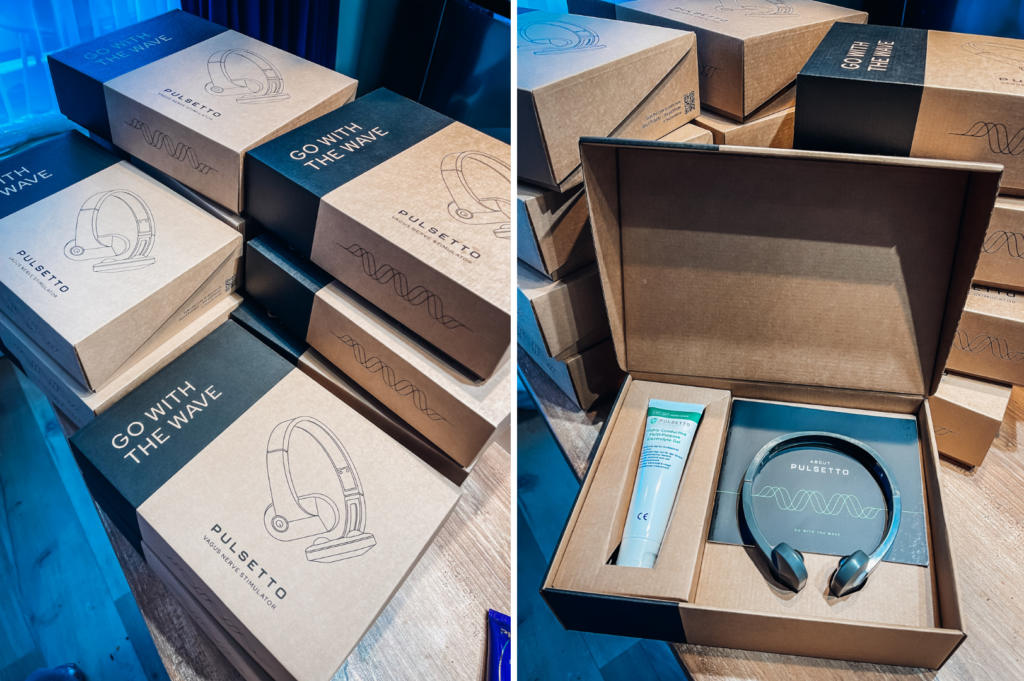
Our brains developed in a calmer time and have the mechanisms to deal with the most common stressors. In the past, we were dealing with the same types of danger over and over again.
Wild animals. Strangers who tried to take over your stuff. War, famine, and diseases. An occasional landslide, wildfire, or flood.
While these were not the best times to live in general – the average lifespan could be around 30–40 years old – they were generally predictable.
So our brains would:
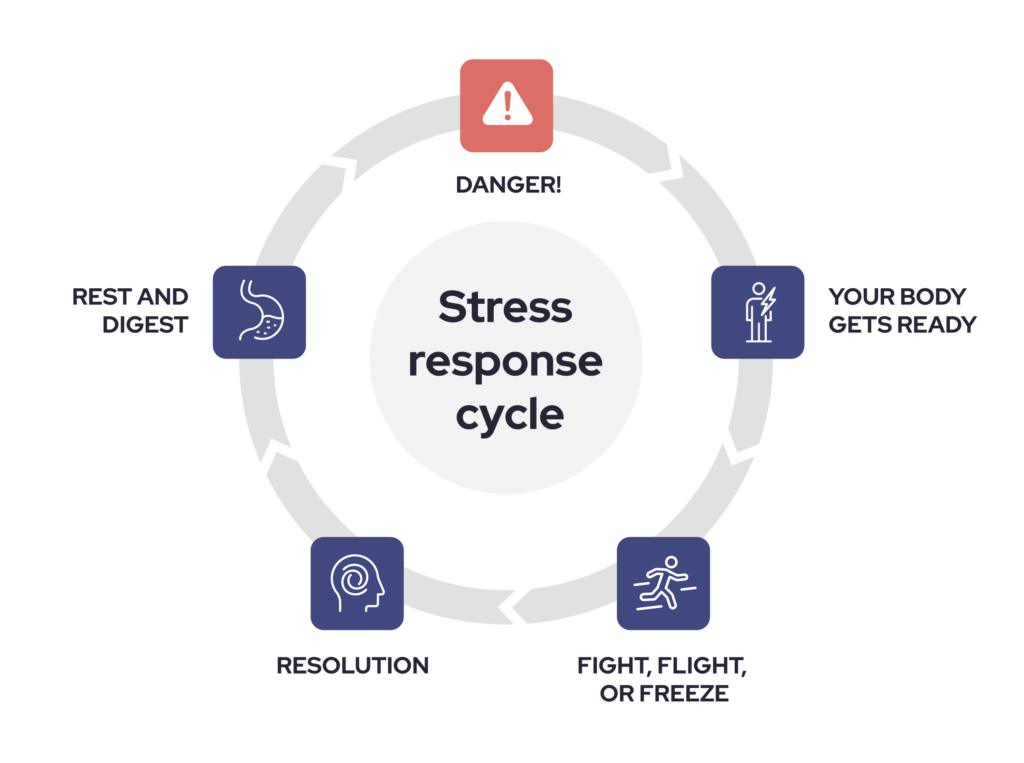
Of course, this is a simplified version of the process.
However, our old good stress response cycle got broken these days. Our brains are used to identify novel things as a possible threat. And there are so many new activities all around us.
From lockdowns to inflation, from mass layoffs to wars, from the climate crisis to financial struggles. Constant notifications, neon advertisements, and sirens on the street. Living in a global world brings global problems to our attention – and they do stress us out.
These daily stressors add up over a day because we don’t properly complete the stress response cycle. We are always on alert. There is always something new happening somewhere.
No wonder why we feel anxious, stressed, or depressed.
We need to reinvent that wheel.
The vagus nerve is like that chatty neighbor who knows what everyone is doing at all times.
Generally, it connects the brain with the rest of our organs. It gathers information about how well we are doing and sends the signals back to our body with instructions on regulating the immune system, digestion, and even mood.
If the brain is the CEO, then the vagus nerve is the HR that looks out for every department. The goal here is to keep everyone informed and ensure that at the end of the day, every team member gets enough rest to seize the next day.
But remember how we talked about the daily stressors?
The vagus nerve cannot do its job anymore – not correctly, at least. Since we are constantly stressed, we can never fully reach the “rest and digest” state.
Sure, it’s possible to do it manually if we get out of our usual way. Cold water therapy, meditation, or deep breathing will help you calm down, if you regularly practice it. But for many people, these options take too much time. That’s especially true if you live in a city, have a high-impact career, or care for multiple toddlers.
If daily hour-long meditation or cold showers are not the possible for you, the stress will build up, impacting your digestion, sleep, mood, and overall health.
I see vagus nerve stimulation as a solution to a global problem.
Sure, you can opt out to live off-grid in nature as our ancestors did. You may not have the same stress-related issues as most city-dwellers. Plenty of people already chose this slow-living lifestyle, leaving their jobs and communities behind.
However, it’s not an option for many of us. You might not have enough resources to purchase the land, do not have the interest to work it, or have health issues that would make this move impossible.
Also, we are social animals, and we need a community. Slow living might be a dream you have, but you might not want to leave your family, friends, and the community you have created in a city.
But what if mental health is still your priority?
That’s where vagus nerve stimulation can help. It helps you achieve the “rest and digest” state and complete the stress cycle in a world that is not designed for calmness.
It’s an option that allows city dwellers to feel like they are walking in a forest, barefoot. It’s a moment of peace for a young parent who cannot turn off and spend hours peacefully meditating. A restful break for a nurse working a 16-hour shift.
Researchers agree that vagus nerve stimulation can complement the treatment of mood and anxiety disorders, depression, epilepsy, post-traumatic stress disorder, inflammatory bowel disorder, and even diabetes. It helps boost the immune system. The entire body rests and heals with the help of this simple action.
The only option you could use previously was surgically implanting the device so it would be easier to stimulate the nerve. Today, we can provide a non-surgical option for home use with Pulsetto.
Would you like to hear more about it?
Let’s connect on LinkedIn – I would be more than happy to tell you all about it.


Kilo Health concluded 2024 on a strong note, achieving stable revenues and growth, alongside a team of 450 employees. In 2024, the company’s consolidated revenue remained steady at €234 million, the same as in 2023. Despite external market challenges, Kilo…
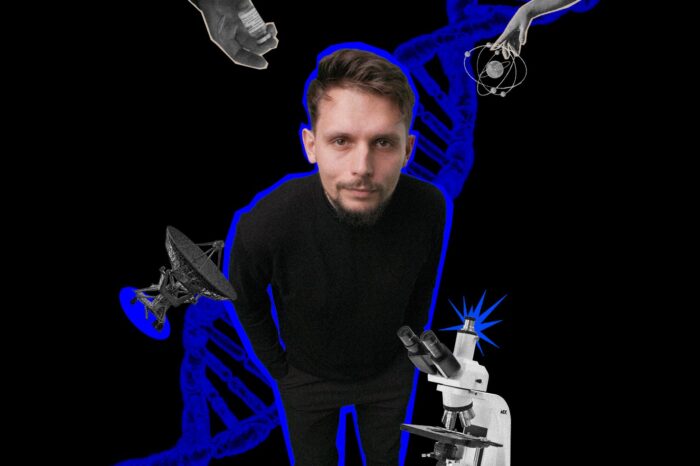
Ask, research, support. These three words sum up my role — or maybe just the nerd face emoji. Currently, I am working as a Scientific Research Lead at Kilo Health. But before that, I’ve always been on a similar path,…
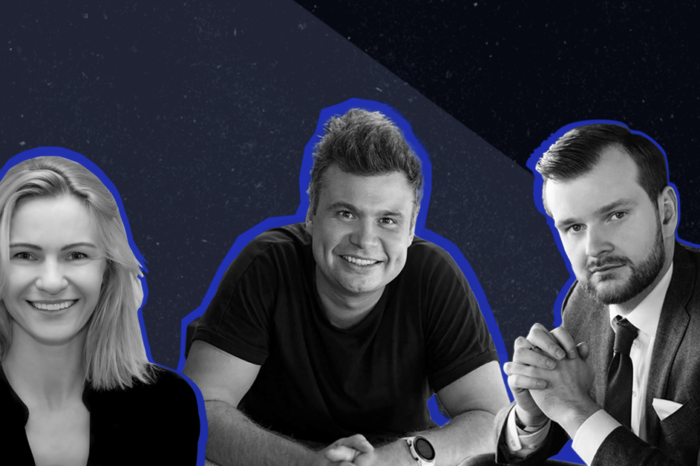
As we’re entering an exciting new chapter of business growth and leadership, it’s the perfect time to catch up on the latest changes in our team and where we’re headed next. Dive in and get to know our new CEO…

I’m Matas, and when asked, I refer to myself as an intern — always learning. However, research, strategy, business development, and idea generation are the cornerstones of my work. I want to pull back the curtain and give you an…

I’m Deimante, currently Head of Marketing at Kilo Health, and a big lover of this company. My journey to being hired at Kilo has been quite the ride. How it all started? I underwent interviews with 11 different people and…

Ever dreamt of taking the lead, even if the path isn’t crystal clear? Or to have someone believe in you and offer you a chance to figure out whether you would thrive in a startup environment? Speaking of which, Kilo…
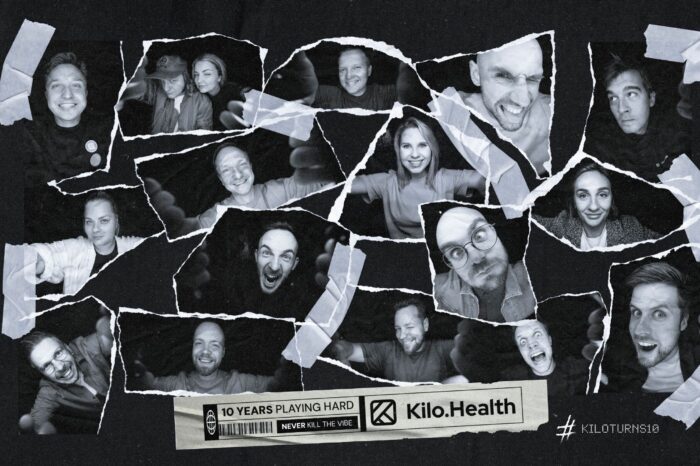
A whole decade has raced by in the blink of an eye for us at Kilo Health, and what better way to celebrate than to reflect on the milestones and lessons over the years? Do you know where we started?…
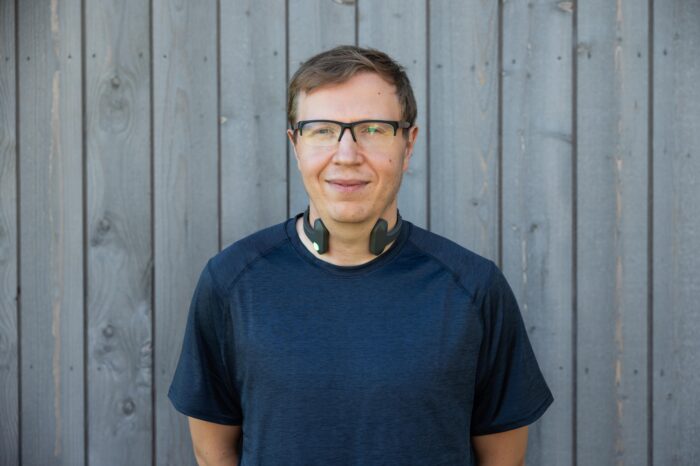
We, the co-founders, are just ordinary individuals with grand ambitions. There are times when we work twice as long and intensely as others, yet we’re equipped with the same amount of daytime, energy, and capacity. However, as leaders in the…

There’s no enchanting tale behind how I became a part of Kilo Health. In truth, some of us regular folks simply have regular journeys, and that’s perfectly fine. What counts is that today, I hold a successful product in my…

Reflecting on your achievements from the previous year is advantageous. That’s exactly what we did, proudly demonstrating our boundless aspirations through an impressive 84% growth and 213 million euros. So let’s put our hands in the air and celebrate together,…

I joined Kilo Health back in 2019, and I can prove that when people’s values and mindsets align, great things can be accomplished, even if you don’t have a plan. BoomeranGO!, the first and only product for children provided by…
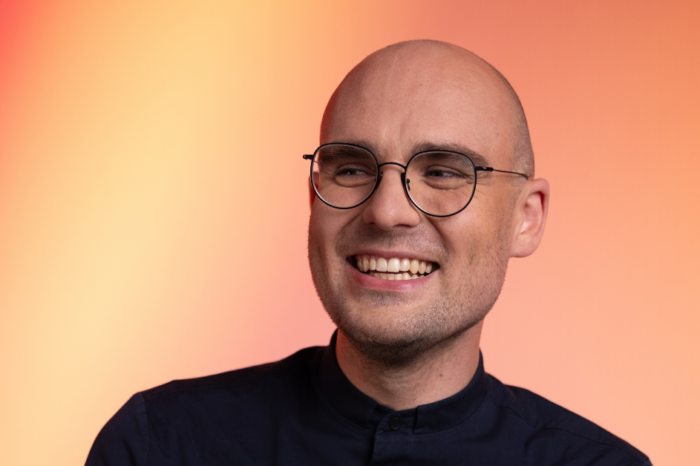
Lighting, sound, set, and actors are essential components of a film studio, but they are not the sole factors that define its success. Consistent creativity, appreciation of talent, and adaptability to market trends are a few of the things that…
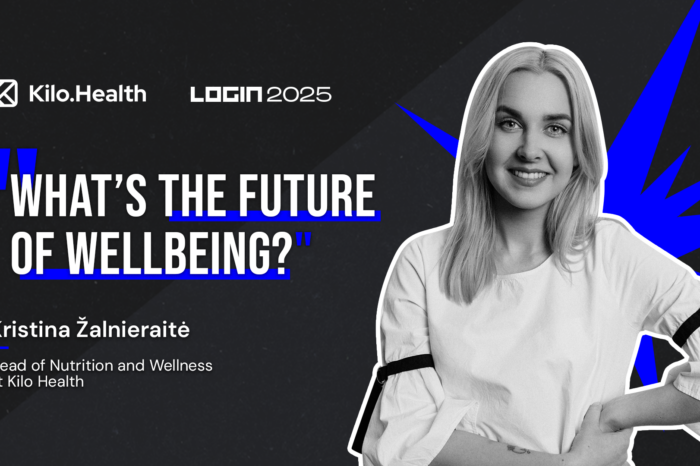
Imagine a world where technology creates a tailor-made meal plan and recommendations after analyzing different data about you. This is not science fiction but a reality that is fast approaching. Traditional plans drawn up by nutritionists are already being replaced…

Hey, I’m glad you’re here — I’m Viktorija Jokantaite-Kutke, the CEO of the Weight Management Accelerator at Kilo Health. One thing about me is that I don’t do boredom. I am always moving, always building. Try to keep up! When…